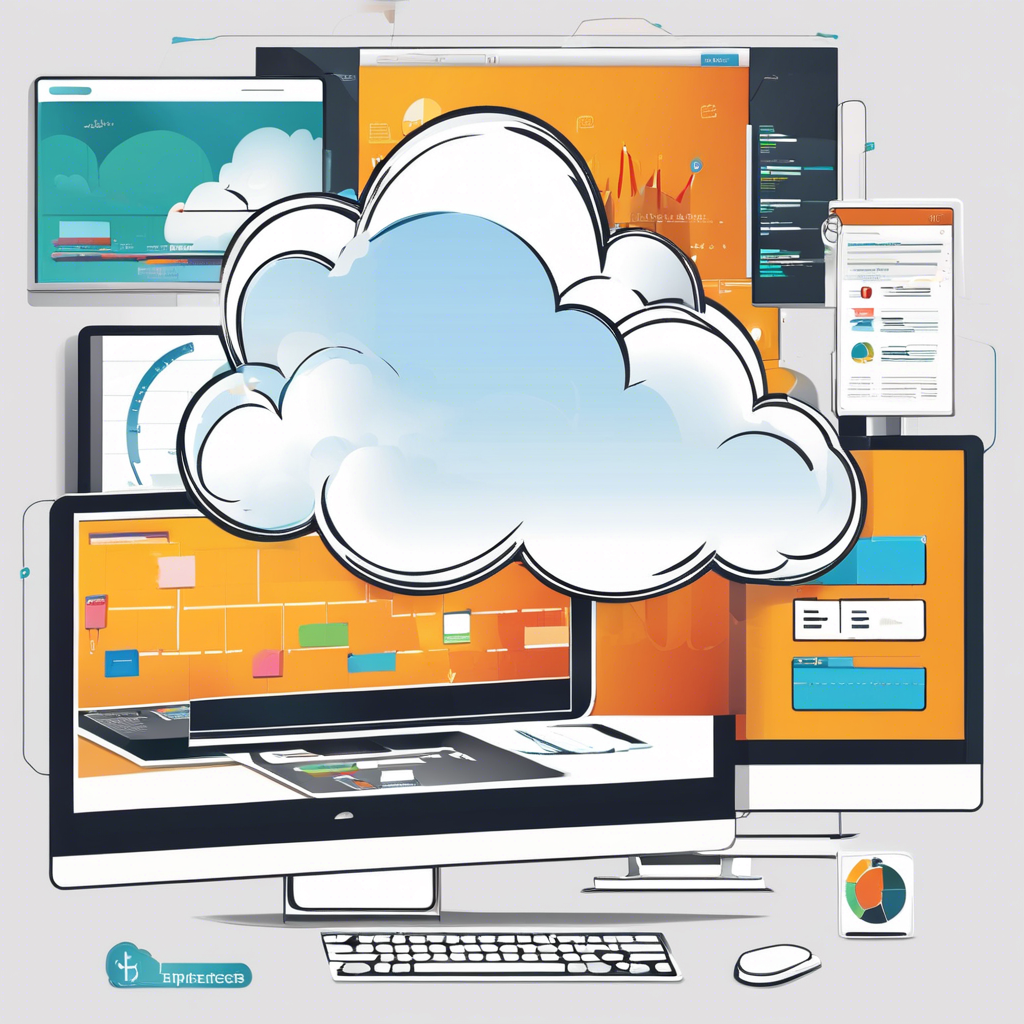Cloud accounting software has revolutionized the way businesses manage their finances in the digital age. With the emergence of cloud technology, traditional accounting practices have been transformed, offering greater flexibility, accessibility, and efficiency to users. In this article, we will explore the benefits, features, and considerations of cloud accounting software for both small businesses and large corporations.
Cloud accounting software, also known as online accounting software, enables users to access their financial data and perform accounting tasks through the internet. This eliminates the need for physical storage of data on local servers and allows for real-time collaboration among multiple users regardless of their location. The convenience of cloud accounting software lies in its ability to provide accurate and up-to-date financial information anytime, anywhere.
One of the key advantages of cloud accounting software is its scalability. Whether your business is just starting out or expanding rapidly, cloud-based solutions can easily adapt to your changing needs. You can upgrade or downgrade your subscription plan, add or remove features, and increase storage capacity as required, without the hassle of installing new software or hardware.
Additionally, cloud accounting software offers enhanced security measures to protect sensitive financial data from unauthorized access or cyber threats. Leading providers implement encryption protocols, multi-factor authentication, and regular backups to ensure the integrity and confidentiality of your information. This level of security is often superior to traditional on-premise accounting systems.
Another notable feature of cloud accounting software is its integration capabilities with other business applications. Users can seamlessly connect their accounting software with customer relationship management (CRM) systems, inventory management tools, payment gateways, and more, streamlining their operations and improving overall efficiency. By automating data transfer between different platforms, businesses can reduce manual errors and save time on manual data entry tasks.
Cloud accounting software also offers advanced reporting and analytics features that provide valuable insights into your business performance. Users can generate customizable financial reports, track key performance indicators (KPIs), and visualize data through interactive dashboards. These tools empower decision-makers to make informed financial decisions and drive business growth effectively.
Moreover, cloud accounting software facilitates collaboration among team members and external stakeholders by enabling shared access to financial data and documents. Users can set user permissions, assign tasks, and communicate within the software, fostering teamwork and accountability within the organization. This collaborative approach enhances transparency and communication, leading to better financial management practices.
In terms of cost-effectiveness, cloud accounting software offers a more affordable alternative to traditional accounting systems. Instead of purchasing expensive software licenses and maintaining on-premise servers, businesses can subscribe to cloud-based solutions on a monthly or annual basis, paying only for the features they need. This subscription-based model reduces upfront costs and allows for predictable budgeting.
Furthermore, cloud accounting software simplifies compliance with tax regulations and financial reporting standards by automating calculations, generating accurate tax returns, and ensuring data accuracy. Users can stay updated on changes in tax laws and regulations through regular software updates and notifications, minimizing the risk of non-compliance and penalties.
When selecting a cloud accounting software provider, businesses should consider factors such as data security, reliability, customer support, ease of use, and scalability. It is essential to choose a reputable vendor with a proven track record in the industry, positive user reviews, and a responsive support team. Conducting thorough research, comparing different software options, and requesting demos can help businesses make an informed decision.
In conclusion, cloud accounting software offers a modern and efficient solution for managing financial tasks, improving collaboration, enhancing security, and driving business growth. By leveraging the benefits of cloud technology, businesses can streamline their accounting processes, gain valuable insights into their financial performance, and make informed decisions to achieve their strategic goals. Embracing cloud accounting software is not just a trend but a necessity in today’s fast-paced and competitive business environment.
